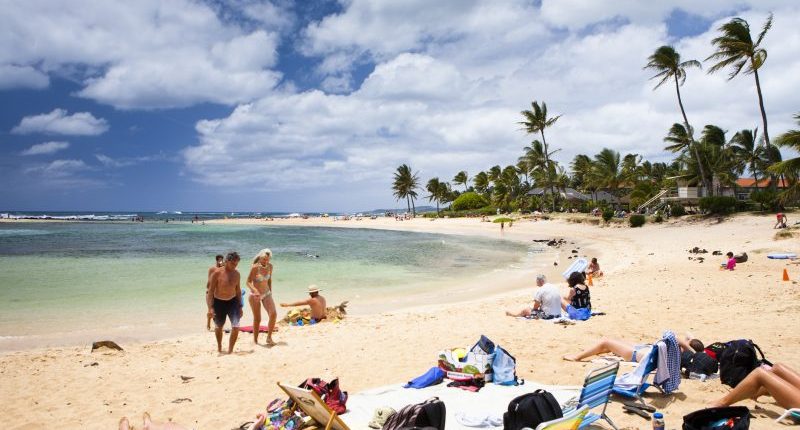Share this @internewscast.com
HONOLULU (KHON) – Starting next year, tourists visiting Hawaii will need to pay a “climate impact fee,” designed to provide financial support for addressing upcoming environmental issues the state anticipates.
Hawaii’s Governor, Josh Green, officially enacted Act 96 on Tuesday, introducing the nation’s first tax of this nature, termed the “Green Fee.”
“I am optimistic that the world will take notice because finding harmony between industry and the environment is essential for safeguarding our citizens […],” stated Green. “Above all, it’s about ensuring the quality of life and opportunities we desire for the next generations.”

The law now increases the the state’s Transient Accommodation Tax (TAT) by .75%, to 11%. This fee will be applied to costs for tourism-related activities including hotels and cruise ships that dock in Hawaii.
To break that down, for every $400 spent, $3 will go towards natural resource protection.
The bill is projected to raise an estimated $100 million a year to address what the state says is about half a billion dollars in critical funding needed to protect Hawaii’s environment.
“The visitor industry will struggle if we do not take action now,” said State Rep. Adrian Tam, chair of the House Committee on Tourism.
Unlike other state programs, the money generated won’t go into a dedicated special fund. Instead, the legislature will reevaluate priorities each year to decide where the money should go based on the greatest environmental need.
The areas of priority are protecting land and aquatic resources, climate and hazard resiliency and sustainable tourism.
The Grassroots Institute of Hawaiʻi, a longtime opponent of the bill, argues that it could end up hurting more than it helps.
“There’s nothing like a Hawaiʻi vacation and that is 100% true. But that doesn’t mean that it won’t affect visitor spending and the attractiveness of the Hawaiʻi as a destination,” said Malia Hill, policy director at the Grassroots Institute of Hawaiʻi.
They argue the fee won’t just fall on tourists, it will also impact local residents and small businesses.
“We travel interisland, for work, to see family, to see friends. So it is a tax on locals, and you cannot get away from that,” Hill said.
Act 96 takes effect Jan. 1, 2026.











